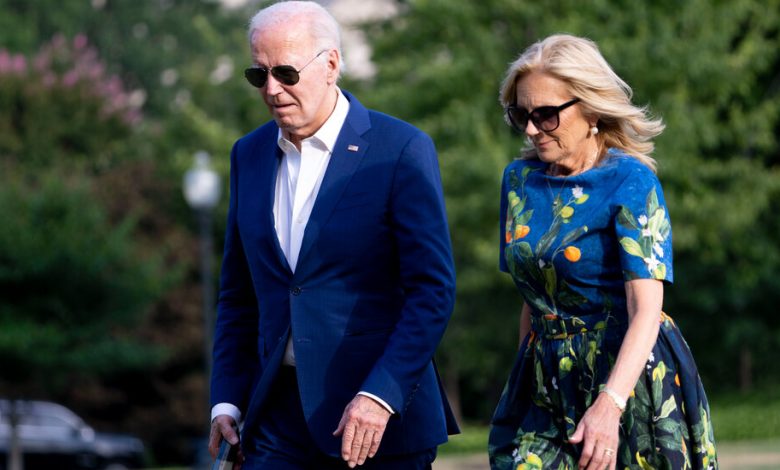11 Days in July: Inside the All-Out Push to Save the Biden Campaign

Nothing President Biden did seemed to work.
He delivered an angry, defensive rant on MSNBC’s “Morning Joe.” He showed foreign policy chops at a news conference. He wrote a long letter to “fellow Democrats” demanding an end to the calls for him to step aside. He confronted lawmakers on a Zoom call that devolved into a tense, heated exchange about his age and mental competency.
Eleven days ago, the president and his closest family members and advisers went on the offensive, determined to end what already had been nearly two weeks of hand-wringing over his listless performance at a debate on June 27. The result was a flurry of interviews, rallies, defiant meetings with his closest allies and impromptu campaign stops — all intended to rebut the premise that he was too old and frail to win a second term.
But almost every step was undercut by his own fumbles and the steady drumbeat of calls from his friends and allies for him to step aside, even from loyalists like the actor George Clooney. Together, it was evidence that nothing he was doing was having much impact. Mr. Biden was racing from place to place, but nothing was changing.
This story of the 11 days that Mr. Biden has spent trying to rescue his hopes for a second four years in the Oval Office is based on interviews with people close to him, including lawmakers, current and former aides, friends and others. Most spoke on the condition of anonymity to discuss one of the most difficult periods in Mr. Biden’s political life.
At the end of two hectic days in the 110-degree heat of Las Vegas this week, it all seemed to catch up with him. Mr. Biden was coughing during interviews and seemed almost as tired and scattered as he did during the debate on June 27. At a campaign stop at a restaurant, he looked pale. He tested positive for Covid, canceled his final speech and flew back to his beach house in Delaware.
By Thursday, Mr. Biden’s flashes of anger had given way to what allies perceived as the beginnings of acceptance that he might lose. People close to him began privately predicting that the end of the campaign was near, and that he might even drop out of the race within days.